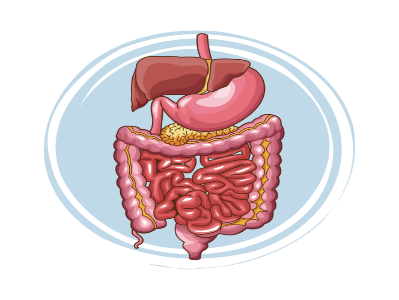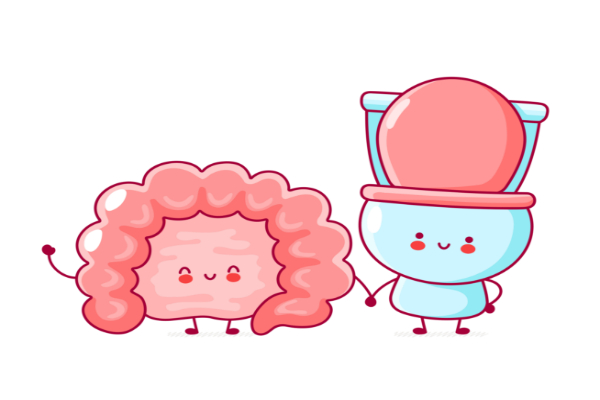
Have you wondered about these questions? Most people take their digestive system or their “gut” for granted until it is not running smoothly. Do you have the misery of frequent diarrhea or constipation? Gut health is a delicate balance. Read on to learn more.
According to the National Institute of diabetes, digestive and kidney disease (NIH) about 65 million people in the U.S. are affected by digestive diseases. Then there are millions more that are affected by short-term digestive problems. What can you do to improve your gut health?
Let us take a closer look at our digestive system to help us understand our “gut.” What anatomy makes up “the gut”. How does our “gut” function?
The main parts of your “gut”
Your esophagus is a muscular mucus-lined tube that connects your mouth to your stomach. It transports what you eat and drink to your stomach. The stomach is where digestion starts. The stomach stores what you eat and acts much like your blender. It mixes the food with acid and enzymes that begin to break it down so the nutrients can be released.
The food then enters the small intestine. In the small intestine, your liver releases bile juices that break down fats. Your pancreas releases juices that break down proteins and carbohydrates. The enzymes in the small intestine break down the sugar that is in your food. At the end of your small intestine, the nutrients from the broken down food also called (Chyme) are absorbed. The bile is recycled to be used again. What happens next, do you know?
 What remains of the food moves on to the large intestine or colon. In this area, water is reabsorbed into your body. If food moves too fast through your colon you get diarrhea. If it moves too slowly you become constipated due to more water being absorbed in your intestine. Prebiotics and probiotics help to maintain a balance that keeps the bathroom visits regular.
What remains of the food moves on to the large intestine or colon. In this area, water is reabsorbed into your body. If food moves too fast through your colon you get diarrhea. If it moves too slowly you become constipated due to more water being absorbed in your intestine. Prebiotics and probiotics help to maintain a balance that keeps the bathroom visits regular.
Your large intestine is rich in bacteria that are beneficial to your health. Prebiotics help feed or nourish good bacteria helping them to be plentiful and strong. Many foods have prebiotics in them, such as apples, bananas, and
Asparagus. Your rectum functions as a holding area before the stool is expelled via your anus.

How do probiotics help with gut health?
Probiotics are good bacteria to help maintain balance and protect you from bad bacteria. Probiotics are often prescribed to be taken while on antibiotics. Antibiotics can kill the good bacteria as well as the bacteria making you ill, which causes diarrhea. It is commonly recommended to take the probiotic and the antibiotic 2 hours apart. To prevent or slow down diarrhea to improve your gut health.
Probiotics are believed to have positive effects on mental health and heart health as well as digestion. You can get probiotics from some food such as yogurt with live cultures. Some cheeses check the label for the words live cultures in the ingredients. Some fermented foods such as sauerkraut also contain live cultures.
If you are having digestive difficulty or have a digestive disease. Consult with your doctor about taking a probiotic. It may be beneficial to you. There are many probiotic supplements you can purchase.

A probiotic called L. Acidophilus has been shown in many studies to be beneficial to gut health. L. Acidophilus is a good bacteria that already exists in your intestines. However, sometimes the balance of good bacteria gets thrown off and digestive problems occur. L. Acidophilus can benefit your gut health by reducing or eliminating diarrhea. It also has been shown to reduce the pain and bloating associated with irritable bowel syndrome(IBS).
If you have a compromised immune system probiotics may be contraindicated for you. Discuss taking a probiotic with your doctor before taking it. For a probiotic to be effective, it should have at least 1 billion live cultures.
Be proactive and keep your gut healthy and balanced. By either eating food that has probiotics in it regularly or by taking a supplement. Your gut will thank you for it.
